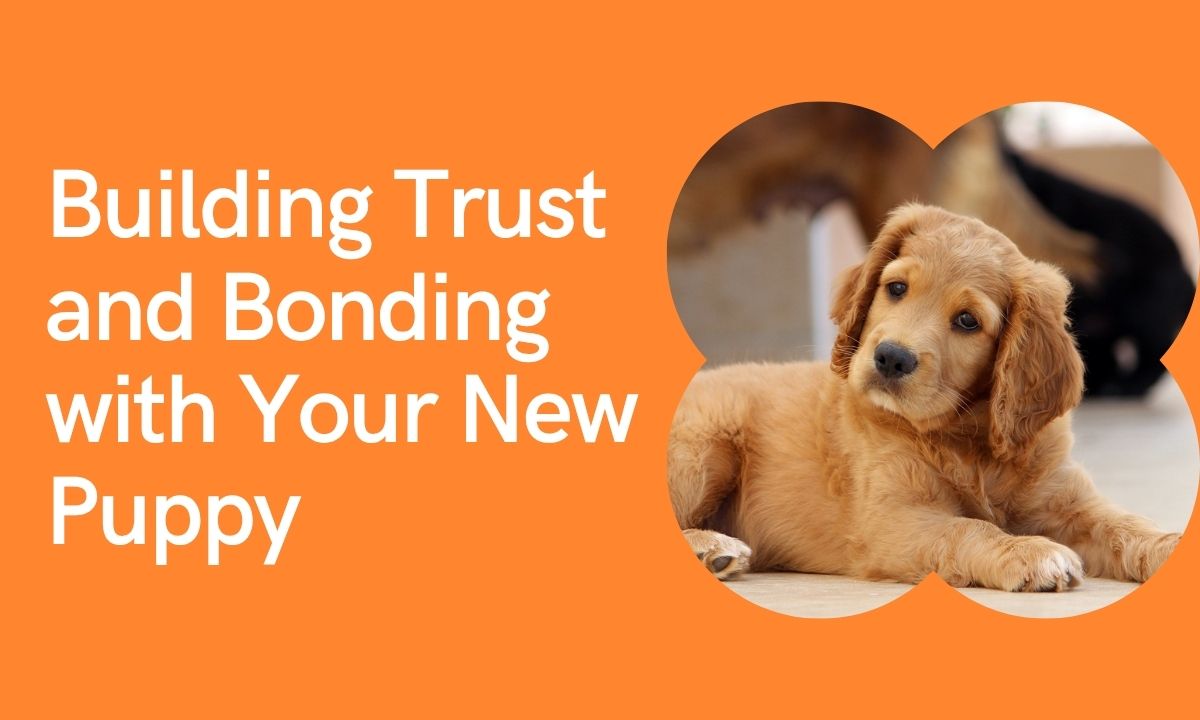Bringing home a new puppy is a life-changing experience filled with joy, excitement, and a little bit of nervousness. From the moment your furry companion steps paw into your home, they begin learning what life with you will be like. But before training, commands, or routines, the most important foundation you can build is trust and emotional bonding. This connection shapes your puppy’s behavior, confidence, and relationship with you for years to come. In this detailed guide, we’ll explore how to build trust and create a lasting, loving bond with your new puppy — one based on understanding, patience, and care.
The Importance of Building Trust from Day One
Trust is not automatic — it must be earned. When your puppy first arrives, everything is new and potentially overwhelming: the smells, sights, and sounds of your home. This is why your first few days together are crucial. Allow your puppy to explore their surroundings at their own pace. Avoid loud noises or excessive handling. Sit near them quietly, speak in a calm tone, and let them come to you. These small gestures teach your puppy that you’re a source of safety and comfort. Building trust early lays the foundation for all future training and interactions.
Creating a Safe and Comfortable Environment
A safe environment is essential for helping your puppy feel secure. Make sure your home is puppy-proofed — remove anything that could harm them or cause fear. Create a quiet corner with a soft bed or crate where your puppy can rest undisturbed. This space becomes their safe zone, where they can retreat whenever they feel anxious. Feeding your puppy in this area and giving them treats there helps them associate it with positive experiences. Over time, your puppy learns that home is a place where they are loved, cared for, and protected.
Establishing a Consistent Daily Routine
Puppies thrive on predictability. Consistency in feeding, playtime, and sleep schedules helps your new pet understand what to expect each day. This routine not only reduces anxiety but also strengthens trust, as your puppy begins to feel confident in your care. Regular routines show reliability — something every young dog craves. Whether it’s morning walks, training sessions, or cuddle time in the evening, sticking to a schedule tells your puppy that they can count on you, and that trust will deepen with each passing day.
Communicating with Love and Patience
Communication is the heart of bonding. Puppies learn through your tone, body language, and consistency rather than your words. When speaking to your puppy, use a calm, gentle voice. Avoid shouting or scolding, as it can create fear instead of understanding. Make eye contact when rewarding or praising them, and always pair good behavior with affection. If your puppy makes mistakes — which they will — correct them gently and guide them toward the right behavior. Over time, your puppy will learn to read your signals and respond with loyalty and confidence.
Positive Reinforcement Builds Emotional Connection
Trust grows through positive experiences. Every time you reward your puppy for good behavior, you strengthen the emotional bond between you. Whether it’s during potty training, leash walks, or learning new commands, always reward effort with treats, praise, or playtime. Positive reinforcement not only teaches obedience but also creates joyful associations with your presence. Your puppy begins to see you as a source of happiness and approval, which naturally enhances trust. Avoid punishment — instead, focus on encouragement, because love and patience yield far better results than fear ever will.
Quality Playtime Strengthens Your Bond
Playtime is more than just fun — it’s a vital part of emotional bonding. Through games like fetch, gentle tug-of-war, or hide and seek, you build a relationship based on mutual joy and trust. These activities help your puppy release energy, learn boundaries, and develop confidence in interacting with you. During play, your puppy also observes your behavior and learns that being near you means excitement and safety. Daily play sessions not only make your puppy happy but also deepen the connection that will last throughout their life.
Gentle Handling and Physical Affection
Physical touch is one of the most powerful ways to build trust. Soft petting, gentle brushing, and cuddling all communicate love and safety to your puppy. However, it’s important to respect your puppy’s boundaries — some may take time to get used to being touched or held. Start slowly and increase contact as they become more comfortable. Handling your puppy regularly also helps them adapt to grooming and vet visits later on. Every affectionate gesture teaches your puppy that your touch means comfort, not fear, and strengthens your emotional connection.
Patience and Time: The True Keys to Trust
Perhaps the most important part of bonding with your puppy is patience. Trust and love do not develop overnight. Each puppy has its own personality — some are shy and reserved, while others are energetic and outgoing. It might take days or even weeks for your puppy to feel completely comfortable. Be patient, consistent, and kind. The more time you spend together — training, playing, walking, or simply relaxing — the more your puppy will begin to trust you unconditionally. Over time, your patience will be rewarded with a loyal companion who sees you as their safe haven.
Final Thoughts
Building trust and bonding with your new puppy is the foundation of a lifelong friendship. It’s not just about commands or training; it’s about creating emotional understanding. Your puppy looks to you for guidance, safety, and affection. By offering love, consistency, and positive experiences, you become their entire world — their family, protector, and best friend. The stronger your bond, the more confident and obedient your dog will become. Remember, trust grows slowly but lasts forever. Every moment you spend nurturing that relationship brings you closer to the loyal companion you’ve always dreamed of.

